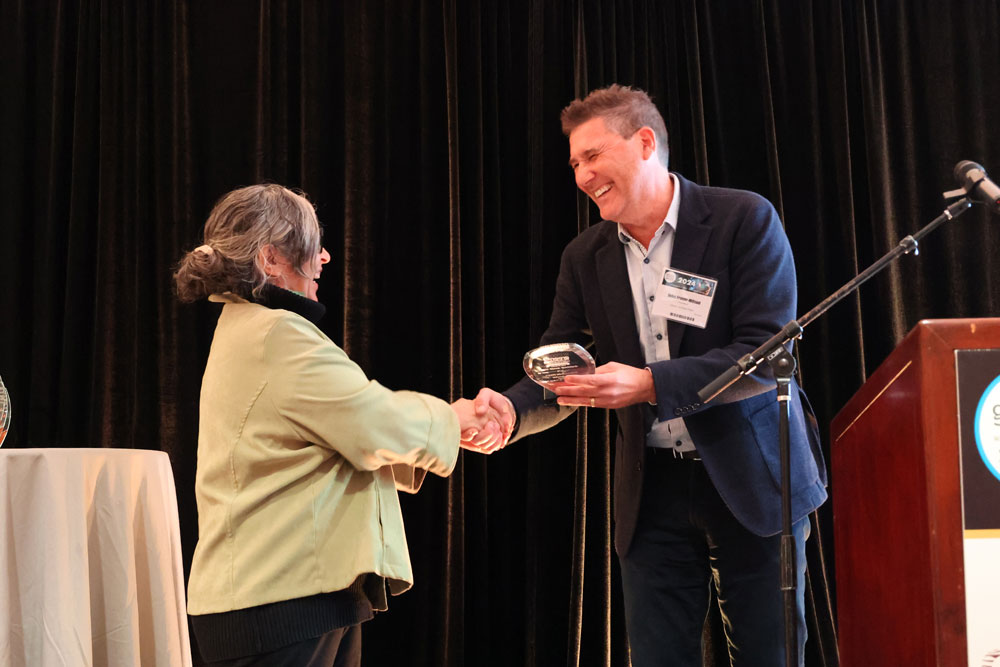
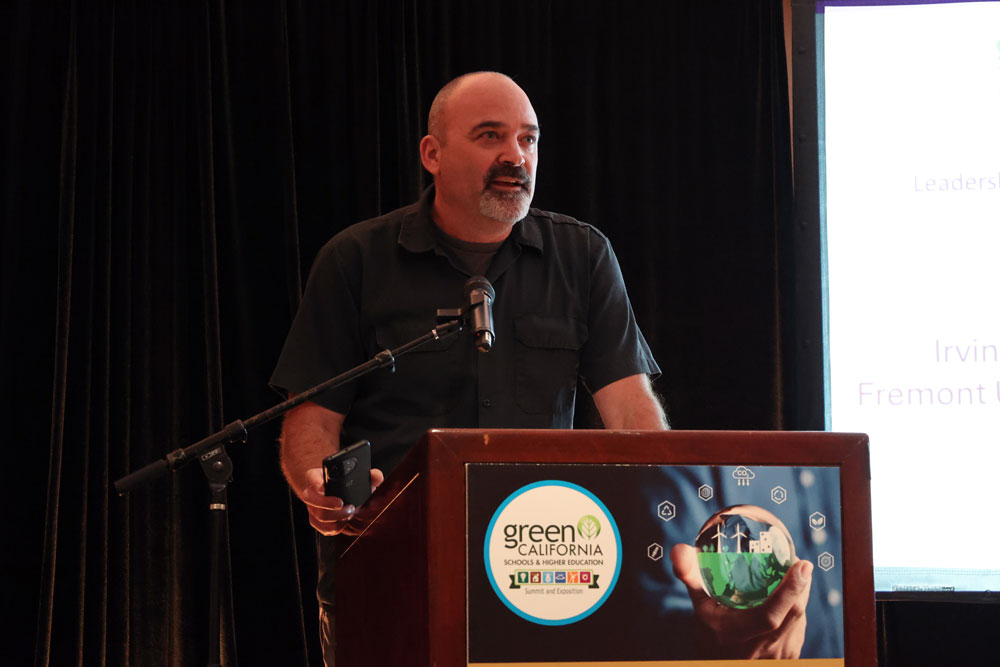
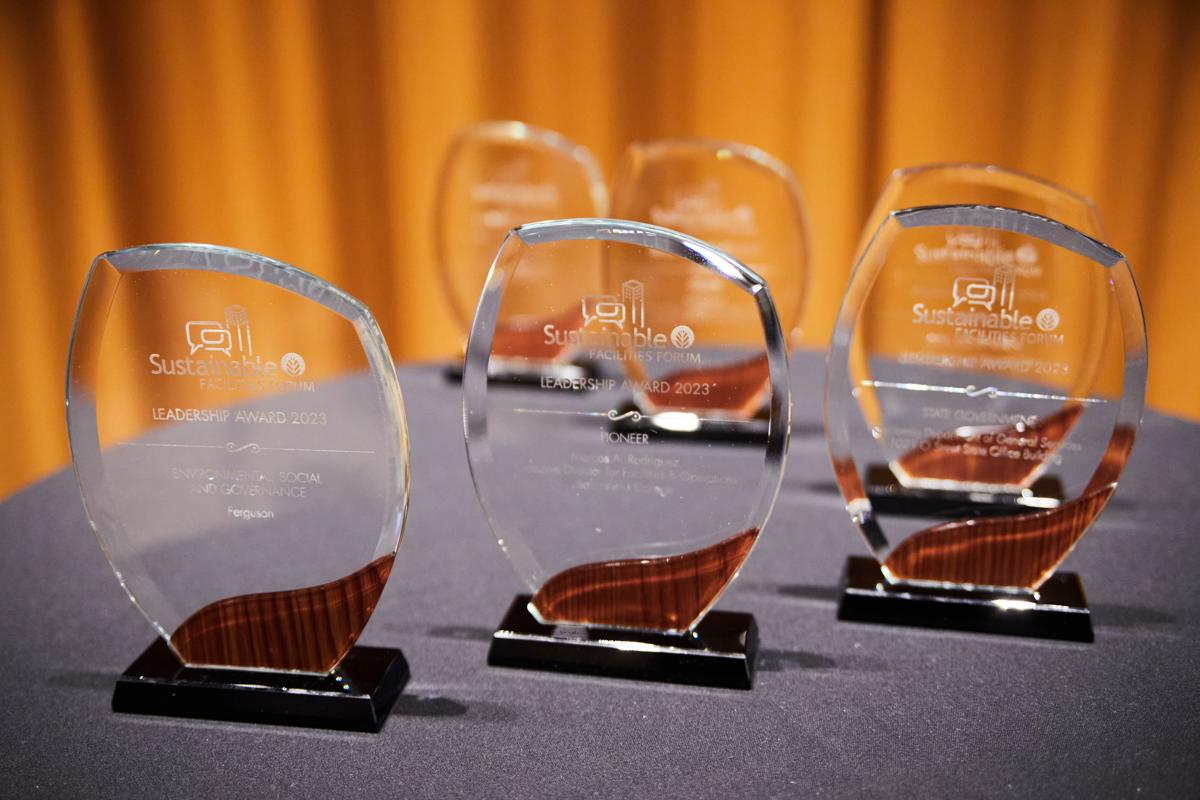
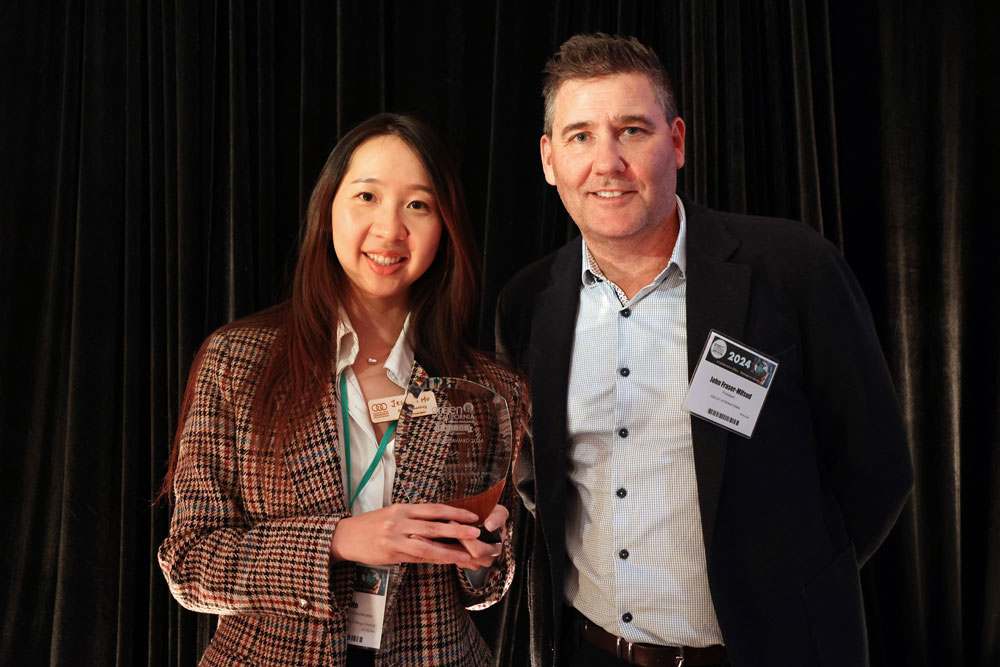
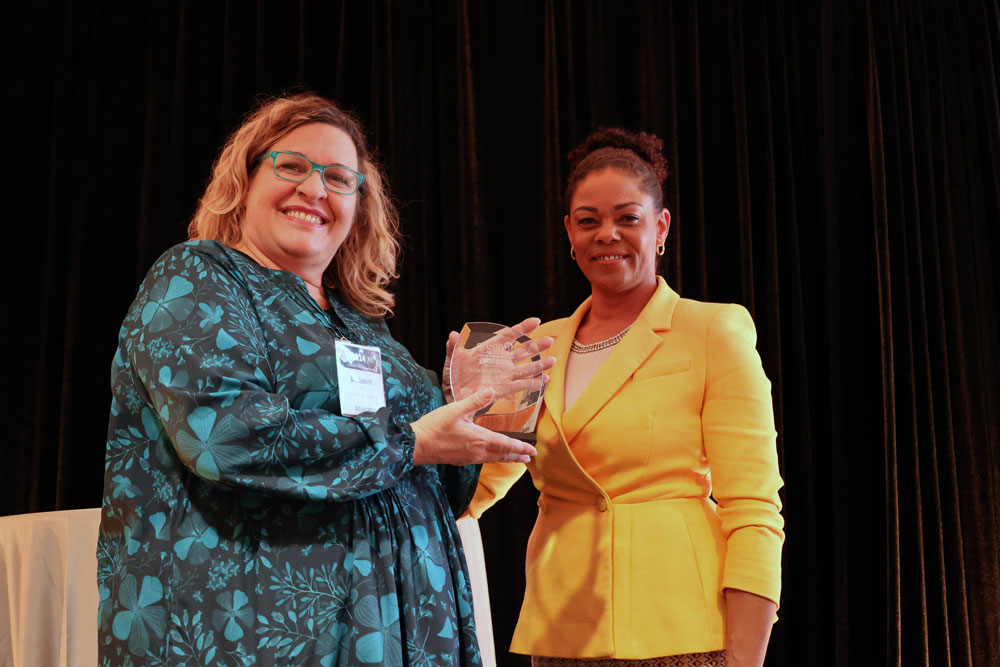
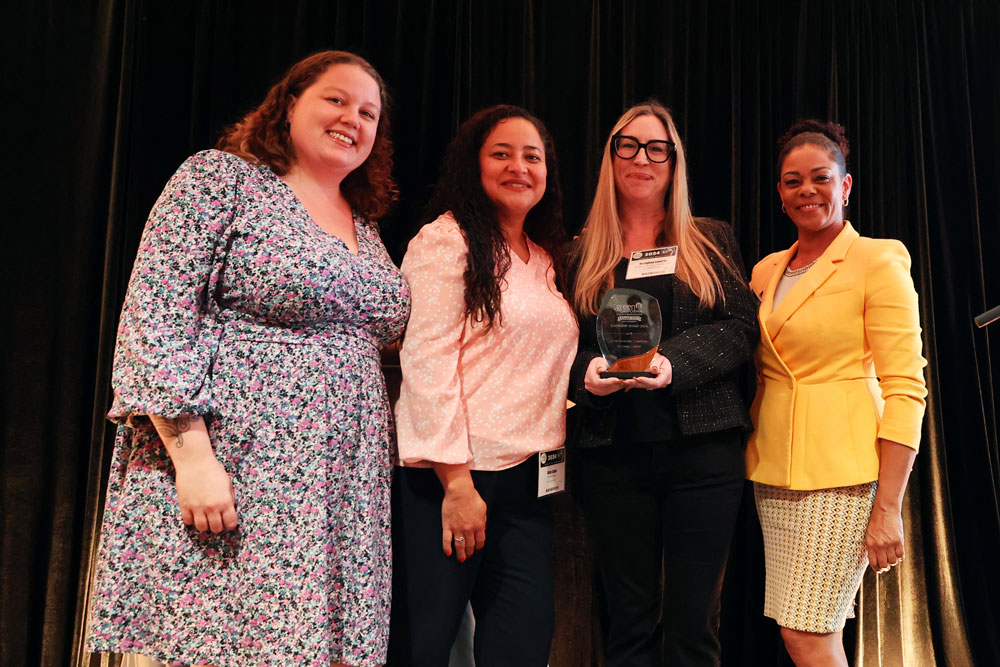
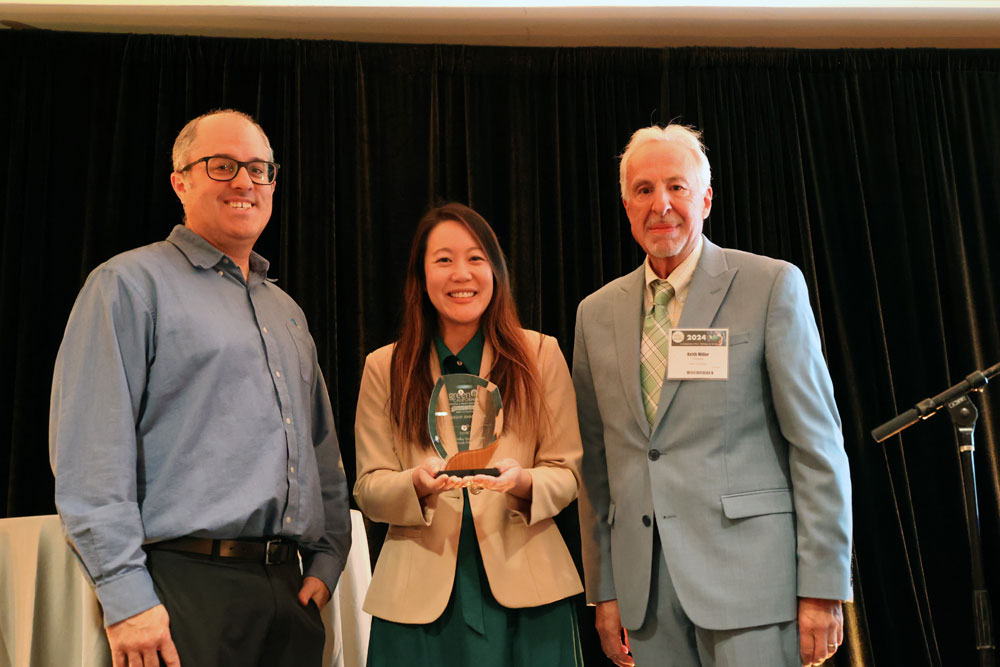
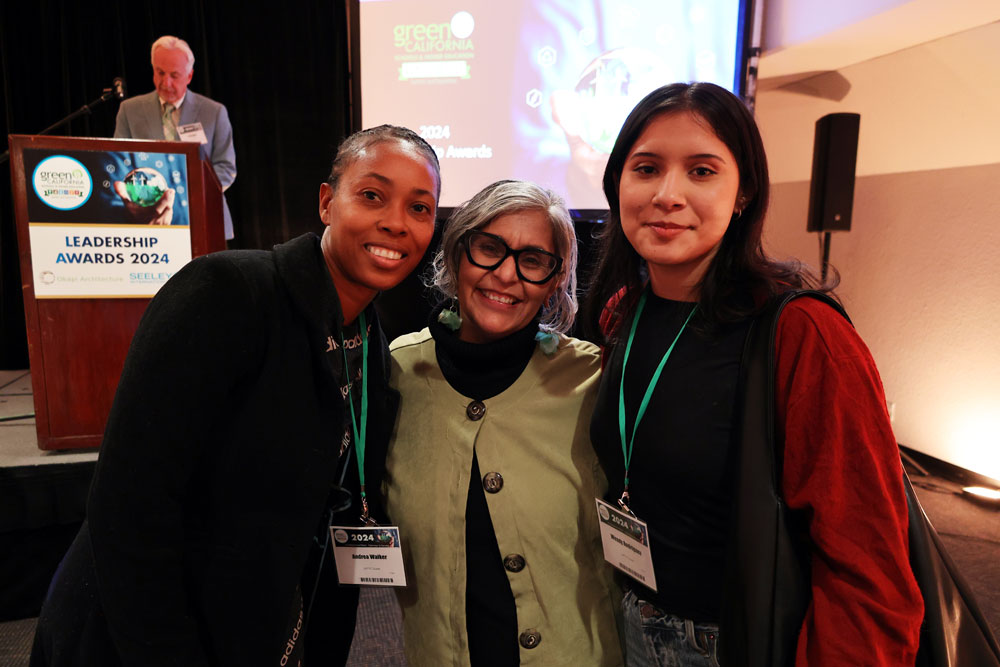
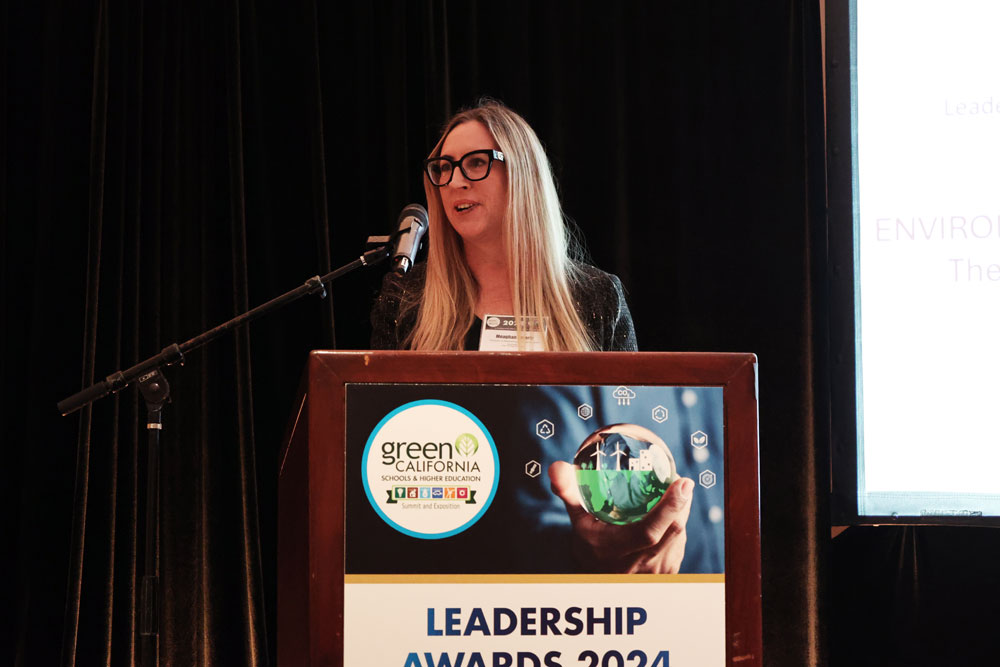
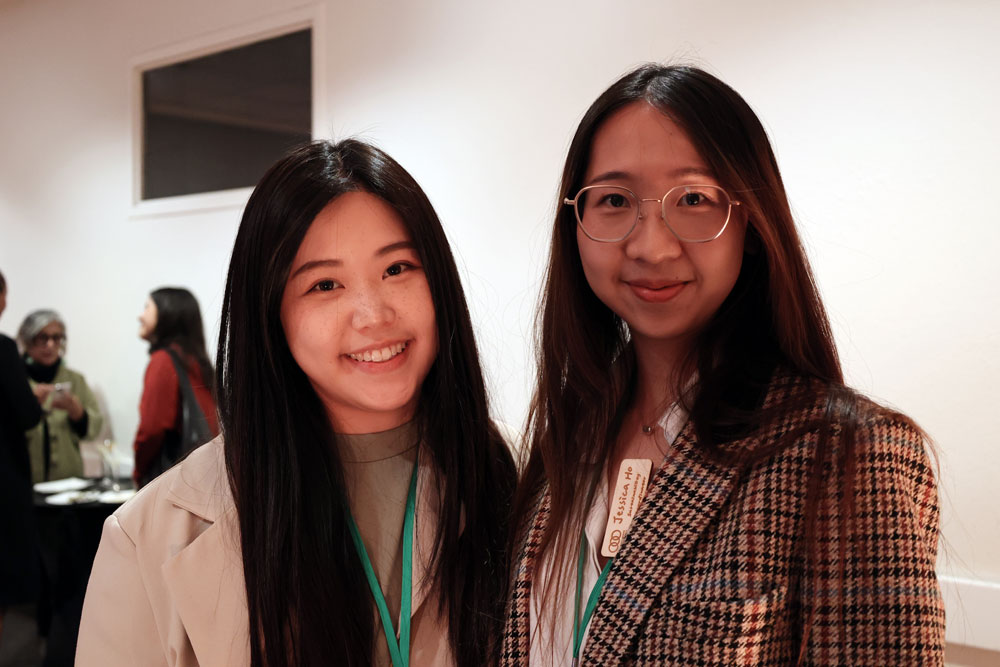
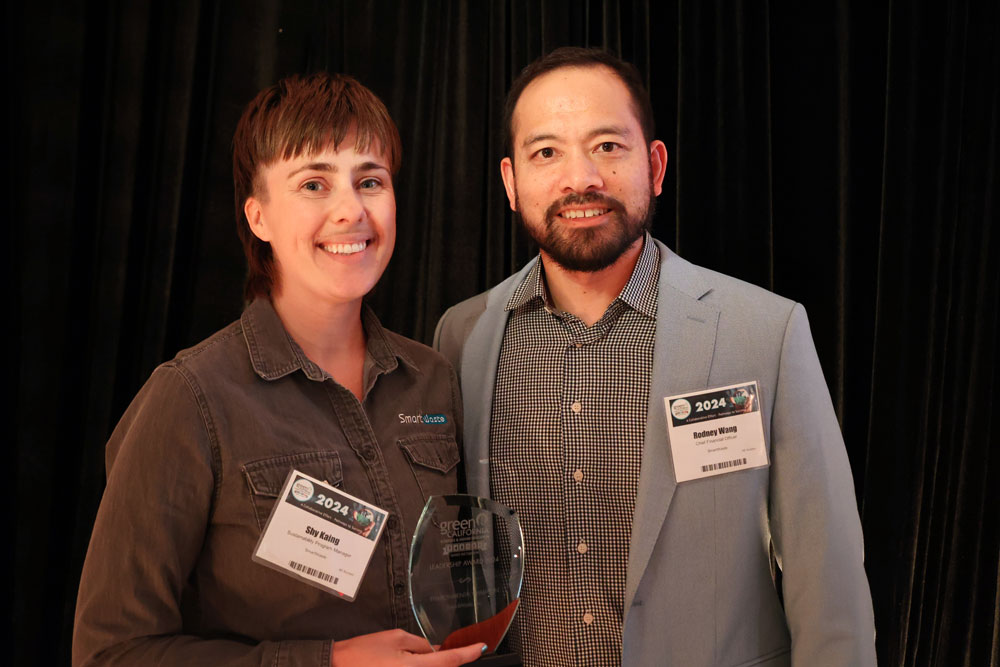
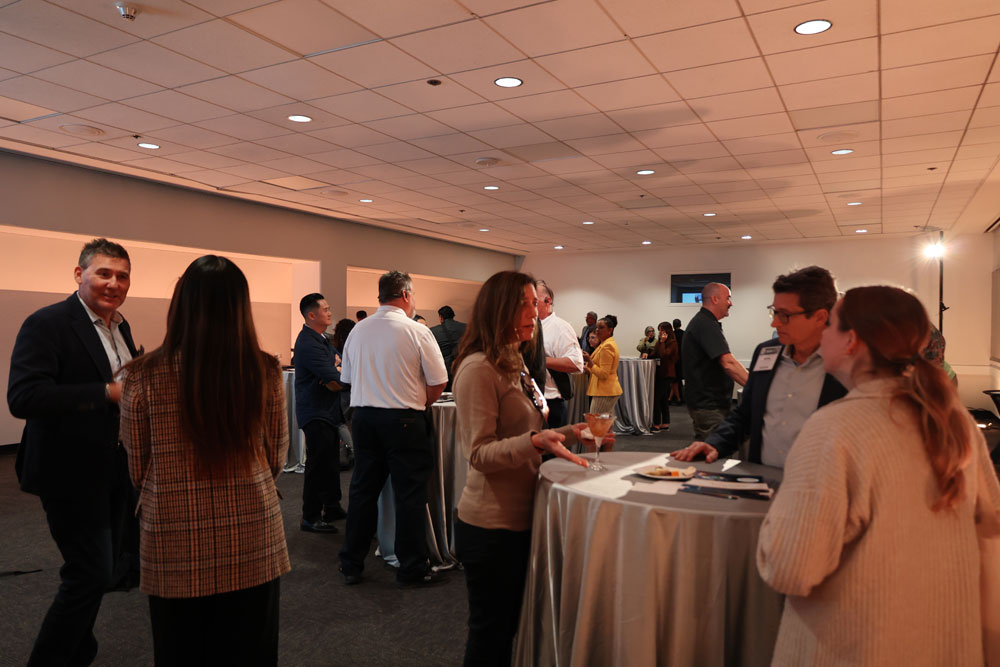
Green Technology’s Leadership Awards aim to recognize and honor individuals, organizations, and institutions that have made significant contributions to advancing sustainability efforts and reducing carbon footprints in various sectors. These awards serve as a platform to acknowledge and celebrate the exceptional work done by stakeholders and leaders in promoting green technologies and practices.
The categories for recognition can vary based on the specific focus areas and priorities of the state and its sustainability goals. Here are the categories for recognition at the 2024 Green California Schools & Higher Education Summit recently held on November 13th, 2024 at the Pasadena Conference Center in Pasadena, California:
- Environmental Champion
- K-12 School
- Community College
- Teacher
- Environmental Literacy
- District
ENVIRONMENTAL CHAMPION
The Energy Coalition
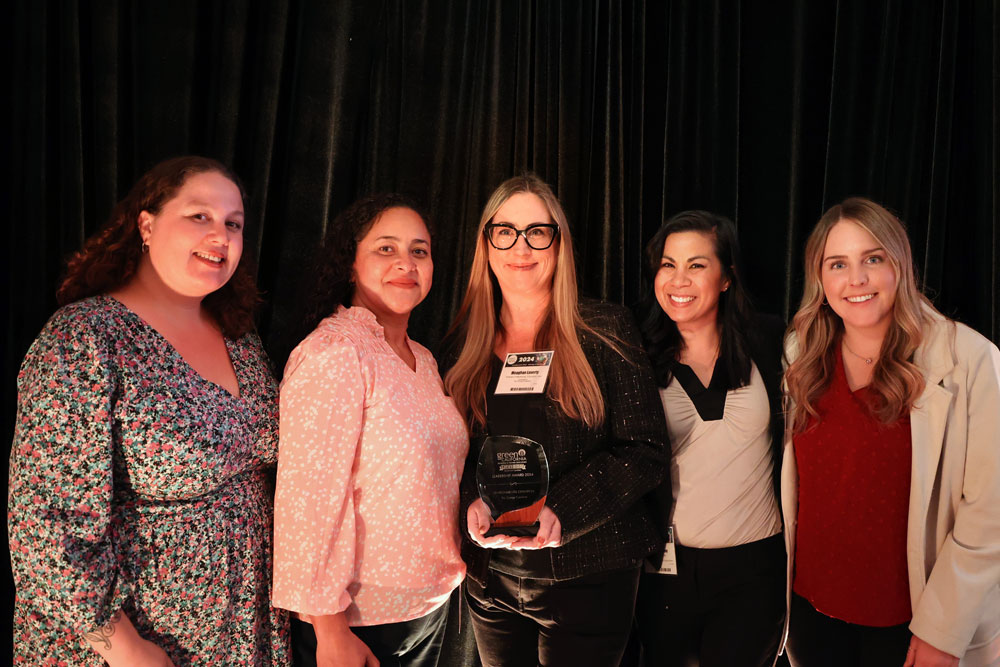
The Energy Coalition (TEC), a non-profit organization, is being honored for its impactful contributions to energy efficiency and sustainability. TEC plays a pivotal role in helping schools and public agencies achieve a resilient, reliable, and affordable energy future through a multi-faceted approach that includes program implementation, workforce development, and education initiatives.
As a key implementer of multiple Regional Energy Network programs, TEC provides no-cost energy efficiency services to public agencies, including school districts and higher education institutions. These efforts help schools reduce energy consumption and leverage state and federal funding to lower project costs. TEC also leads education and workforce training initiatives that empower the next generation of energy professionals. Their programs, such as Energy is Everything, PG&E Career Connections, and SCE’s Charge Ready for Schools, provide K-12 students with innovative curricula and offer fellowship programs that place hundreds of emerging professionals in climate and energy-related jobs annually.
TEC’s work reaches over 36 million people in California, with more than 7 million individuals from disadvantaged communities benefiting from energy efficiency and workforce programs.
This year alone, TEC has supported nine school districts with energy efficiency upgrades across 29 sites, including HVAC improvements, lighting retrofits, and electric heat pump water heaters. Their work continues to positively impact schools and communities, driving California toward a sustainable and equitable energy future.
K-12 PUBLIC SCHOOL
Luther Burbank High School
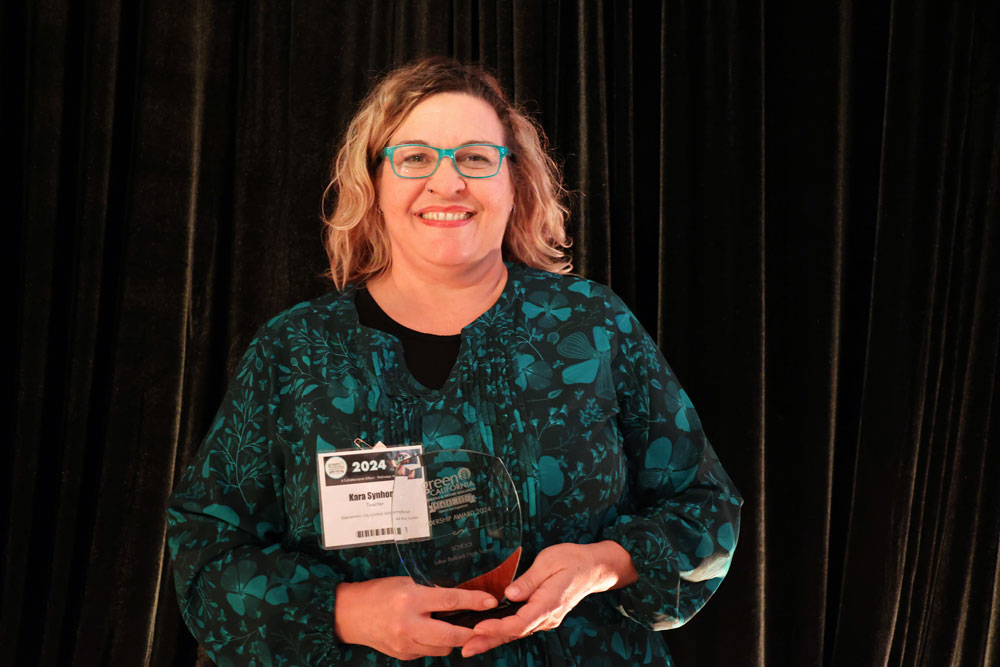
Luther Burbank High School’s Creativity, Action, and Service Club (CAS) is being recognized for its innovative partnership with CSU Sacramento’s Environmental Science Department, Keep California Beautiful (KCB), and the City of Sacramento’s Stormwater Department. Together, they have spearheaded a participatory science project that combines litter cleanup, data collection, and community engagement to address environmental issues in underserved areas.
This collaboration focuses on cleaning litter hotspots and illegal dumping areas while gathering data to inform future interventions and support grant applications. By involving high school students, this project fosters youth engagement in scientific research and community service. A key driver of the project’s success is the leadership of Ms. Synhorst, who encouraged her students to work alongside CSU Sacramento faculty and KCB interns, developing and executing the project in areas identified as high need by the City of Sacramento.
The project’s innovative approach includes a proof of concept, funded by grants from the Department of Water Resources and the EPA, which led to the development of data dashboards to monitor litter in the American River Basin. Through the KCB Data Collection Tool, students gathered information on the types of litter collected and assessed the areas’ needs for On-land Visual Trash Assessments (OVTA), aiding stormwater permittees in their compliance efforts.
This youth-led initiative has expanded to include Folsom High School and continues to provide valuable data for decision-making. Not only has it raised community awareness about litter, but it has also secured a Caltrans Community Improvement grant for the Florin Road Community Beautification Project. This partnership serves as a replicable model for collaboration between schools, local governments, and nonprofits, inspiring a new generation of environmental leaders.
COMMUNITY COLLEGE
San Mateo County Community College District
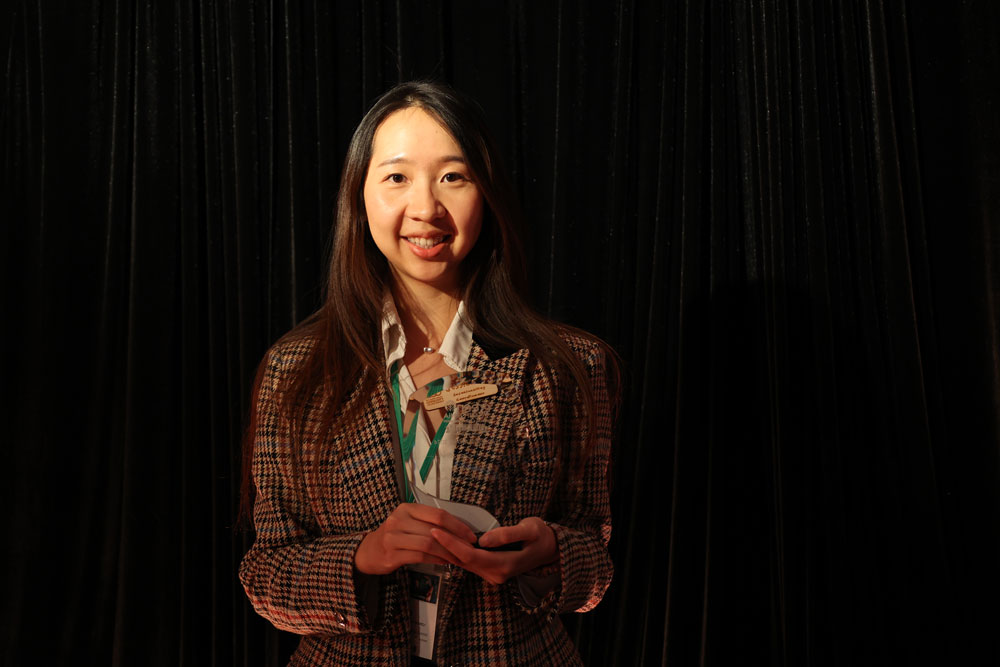
The Sustainability Career Center (SCC) at the San Mateo County Community College District, founded by Jessica Ho, exemplifies innovative sustainability education and workforce development. Jessica’s pioneering approach integrates hands-on learning with cutting-edge technology, empowering students and faculty to engage with climate solutions and green career pathways. The SCC’s success is attributed to several key elements:
Museum of Tomorrow (MoT) Model: This pop-up sustainability museum, designed by students, provides interactive exhibits which help students explore climate solutions and green careers in a creative, engaging manner. These exhibits, paired with the SCC’s curriculum integration, are instrumental in bridging the gap between education and sustainability.
Student and Faculty Engagement: The SCC serves as a hub for students to gain real-world experience, collaborate on projects, and explore career opportunities in sustainability. Faculty benefit from curriculum integration workshops, and the SCC facilitates cross-departmental dialogue, encouraging sustainability as a cornerstone of the district’s educational mission.
Zero Waste Workshop: SCC’s Team conducted a Districtwide zero waste workshop for faculty and staff, and zero waste reviews for facilities staff. This has resulted in a consistent waste diversion rate of over 70%. Deployment of liquids bins in their dining halls has also reduced custodial staff weight-based injuries significantly. At Earth Fest, they recycled over 160 pounds of e-waste, prevented over 100 items of clothing from going to landfill, connected students with 12 opportunities and organizations, collected petition signatures to support the campus switch to 100% clean energy procurement, and had an estimated attendance of 200 students, staff, and faculty.
SCC’s broader impact extends beyond the campus, influencing the wider community with initiatives like the 100% clean energy procurement project, resulting in a 99% reduction in scope 2 emissions.
TEACHER
Dan Pearce
Irvington High School
Fremont Unified School District
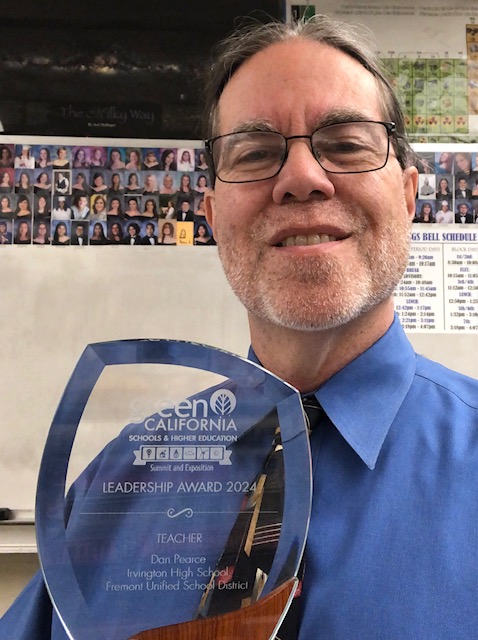
The Change Project at Irvington High School, led by Dan Pearce for nearly three decades, stands out for its comprehensive and inclusive approach to environmental education. Every 9th-grade student participates, emphasizing environmental action through service-learning. This ensures that students of all backgrounds, including multilingual learners, special education students, and honors students, engage in tackling local environmental challenges.
One of the most innovative aspects of the program is its interdisciplinary nature, integrating science and English, and its commitment to action. Students work in teams to design and implement projects that address real-world environmental issues, such as invasive species management, composting, recycling, habitat restoration, and water quality improvement. These projects often involve partnerships with local organizations like the City of Fremont, East Bay Regional Parks, and Don Edwards National Wildlife Refuge.
Mr. Pearce’s leadership has been instrumental in adapting the program to changing state standards and advocating for its importance across multiple changes in school and district leadership. With over 15,000 students contributing more than 125,000 hours of environmental service, the program has had a profound impact on both the students and the broader Fremont community. The annual Change Project Open House showcases students’ projects and engages the community, furthering environmental awareness and action.
Looking forward, Irvington students are poised to play a crucial role in addressing the challenges posed by climate change, particularly in supporting the City of Fremont’s Climate Action Plan.
ENVIRONMENTAL LITERACY
Susan Blumenfeld
Professor
Los Angeles Community College District
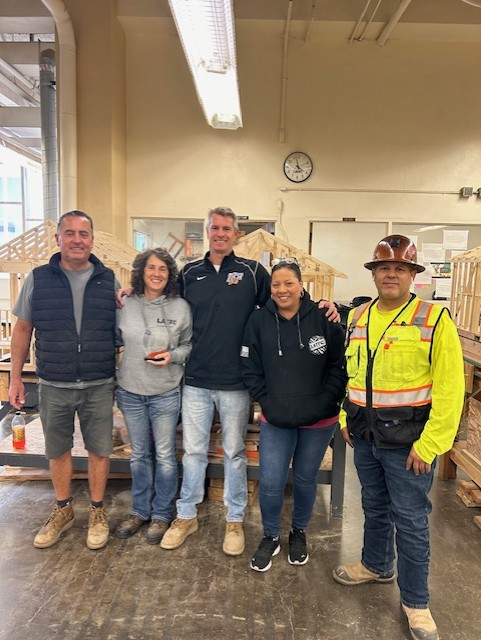
Professor Susan Blumenfeld’s sustainability program at Los Angeles Trade Technical College is groundbreaking, offering students hands-on experience with sustainable deconstruction, solar energy installation, rain harvesting, and green building techniques. Her innovative approach emphasizes the reuse of materials, such as wood, up to four times—a concept embraced by students and now being applied at major construction sites in downtown Los Angeles. The practice of deconstructing projects and reclaiming wood not only reduces waste but also provides materials for future projects or resale at Habitat for Humanity (H4H) stores, driving down costs and reducing environmental impact.
Additionally, Ms. Blumenfeld’s exposure of students to solar energy, through partnerships with Habitat for Humanity, equips them with practical skills in solar panel installation, leading to living-wage jobs. Her incorporation of rain harvesting techniques, such as the use of an inverted gable roof design and rain barrels, has become a standard practice at H4H builds in Los Angeles, a method not commonly taught in the region.
By integrating these sustainable practices, Ms. Blumenfeld’s program is cultivating a new generation of workers trained in green building technologies, benefiting students, low-income housing initiatives, and the greater Los Angeles community.
Professor Blumenfeld’s program has benefited students by them gaining sustainable building skills, it has benefited Habitat for Humanity’s low-income housing projects, Downtown Los Angeles construction projects, Local unions and construction industries.
Ms. Blumenfeld’s program has resulted in a 33% reduction in wood purchases at the college, reduced costs for Habitat for Humanity, and solidified the program as a top resource for local unions.
Continuing Ms. Blumenfeld’s methods could save the district $100,000 and preserve significant natural resources, like trees, over the next decade. As downtown LA increasingly embraces her techniques, the potential for industry-wide adoption and sustainability is immense.
ENVIRONMENTAL CHAMPION
SmartWaste, Inc.

SmartWaste, Inc and Jurupa Unified School District’s Zero Waste Program is notable for its integration of advanced waste tracking technologies and its comprehensive approach to waste reduction across the district. The use of Waste Vision AI and waste meters to monitor waste data allows the district to track contamination levels, assess volume capacity, and adjust strategies in real-time, ensuring efficient waste management. SmartWaste, Inc. also implemented targeted recycling efforts, including a landscape, cardboard, and carton recycling initiative, which helped streamline the district’s waste management process and increase recycling rates.
The close collaboration between the district and local Materials Recovery Facility (MRF) ensures that waste sorting and recycling processes are optimized, providing significant environmental and financial benefits. This innovative partnership between education institutions and waste management technologies provides a replicable model for other school districts aiming to reduce waste.
Waste meters provide detailed data on waste disposal, which helps the district manage waste more effectively and ensures continuous improvement in diversion efforts. These technologies empower the district to make informed decisions that align with zero waste goals.
Administrators and Faculty benefit from reduced waste disposal costs and environmental sustainability, Custodians and Food Service staff engage daily in waste sorting, enhancing operational efficiency, Students and Think Together after-school staff learn sustainable practices and actively contribute to zero waste efforts.
Due to SmartWaste, Inc. and Jurupa USDs collaboration they have reduced waste disposal costs. Had a significant reduction in overall waste and increased landfill diversion rates. They have ensured that Jurupa USD receives rebates on source-separated materials like cardboard (OCC) and enhanced recycling and waste diversion infrastructure at the District.
The program is expected to continue delivering cost savings through improved waste management. Plans include expanding the program to include a composting initiative for food and organic waste from buildings, further reducing landfill contributions and promoting sustainability district-wide. The district is also poised to achieve even higher diversion rates and long-term environmental benefits.
DISTRICT
Castro Valley Sanitary District
Schools Programs
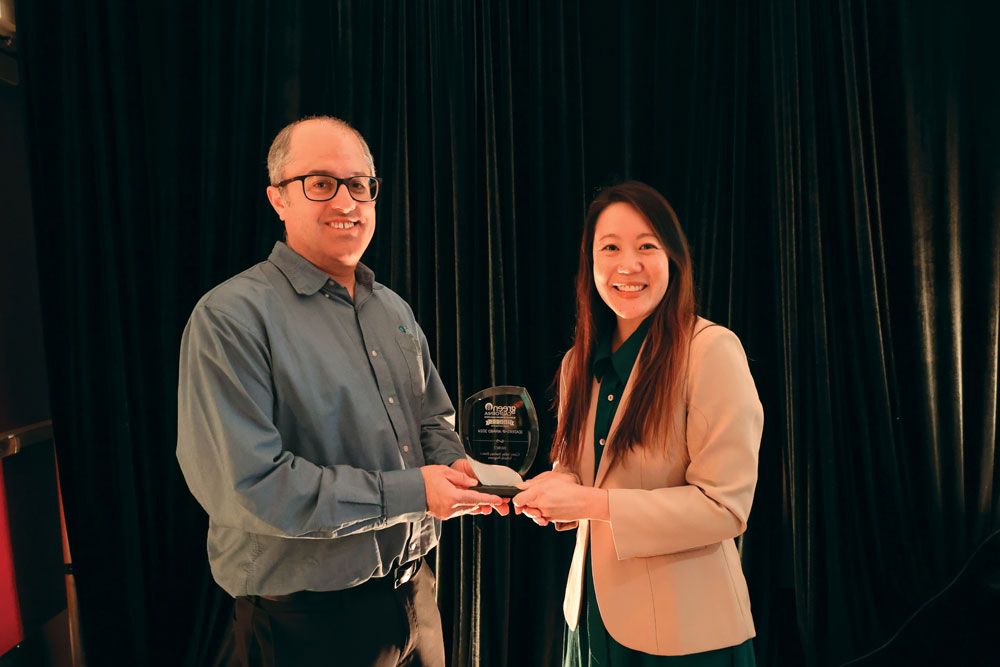
The Castro Valley Sanitary District’s (CVSan) Schools Programs, launched in 1994, have become a cornerstone in educating students about the 4Rs—Reduce, Reuse, Recycle, and Rot (Compost). These initiatives have led to an impressive waste diversion rate of 90% in 2024, up from 40% in 2008, even as school enrollment increased by 25%.
The program’s success is attributed to strong relationships built over three decades with school stakeholders, including superintendents, principals, teachers, custodians, students, parents, and volunteers. CVSan’s comprehensive offerings include many different programs such as the Green Ribbon Schools Program: This initiative recognizes and rewards schools that achieve a minimum 90% waste diversion and complete 40 or more annual activities promoting the 4Rs. And the 4Rs Field Trip: An engaging annual field trip for 700 third graders that includes activities like making recycled paper and learning about zero waste through interactive videos, games, and performances. Another program they have is the Refresher Assemblies: Held at the start of each school year, these assemblies teach students how to properly sort recycling, organics, and garbage. Other programs they have continued are the Environmental Leader Student Scholarships: Awards that encourage students to act in their local communities and become environmental stewards. And the Custodian Recognition Luncheon: An annual event that honors the custodial staff’s essential role in maintaining sustainable practices. And finally, the Donations of Recycling and Organics Containers: Schools receive subsidized recycling and organics services at no charge, further reducing waste.
CVSan has consistently innovated and expanded its programs. In 1997, they launched the Recycled Art Contest, and in 2007, they introduced the School Waste Audits, where students sort through waste to identify recyclable or compostable items. The 4Rs Student Activity Book, released in 2015, correlates with common core standards and won four awards for promoting zero waste education.
The results speak for themselves. Schools have drastically reduced waste sent to landfills, contributing to California’s overall reduction in greenhouse gas emissions. The impact extends beyond students, as families adopt waste-reduction habits at home.
As CVSan continues toward its goal of 90%+ waste diversion by 2029, its programs are set to influence even more students, families, and communities.
The importance of these awards lies in their ability to inspire and motivate individuals, organizations, and communities to adopt sustainable practices and technologies. By recognizing and honoring the efforts and achievements of sustainability leaders, the awards create role models and showcase success stories that can drive further progress. The awards also provide a platform for networking, collaboration, and knowledge sharing among stakeholders, fostering a sense of community and shared responsibility for environmental stewardship.
Overall, the Leadership Awards play a vital role in promoting and accelerating the transition towards a more sustainable future.
Congratulations to all award winners!!
Thank you to our Leadership Awards and Mixer Sponsors for 2024!


